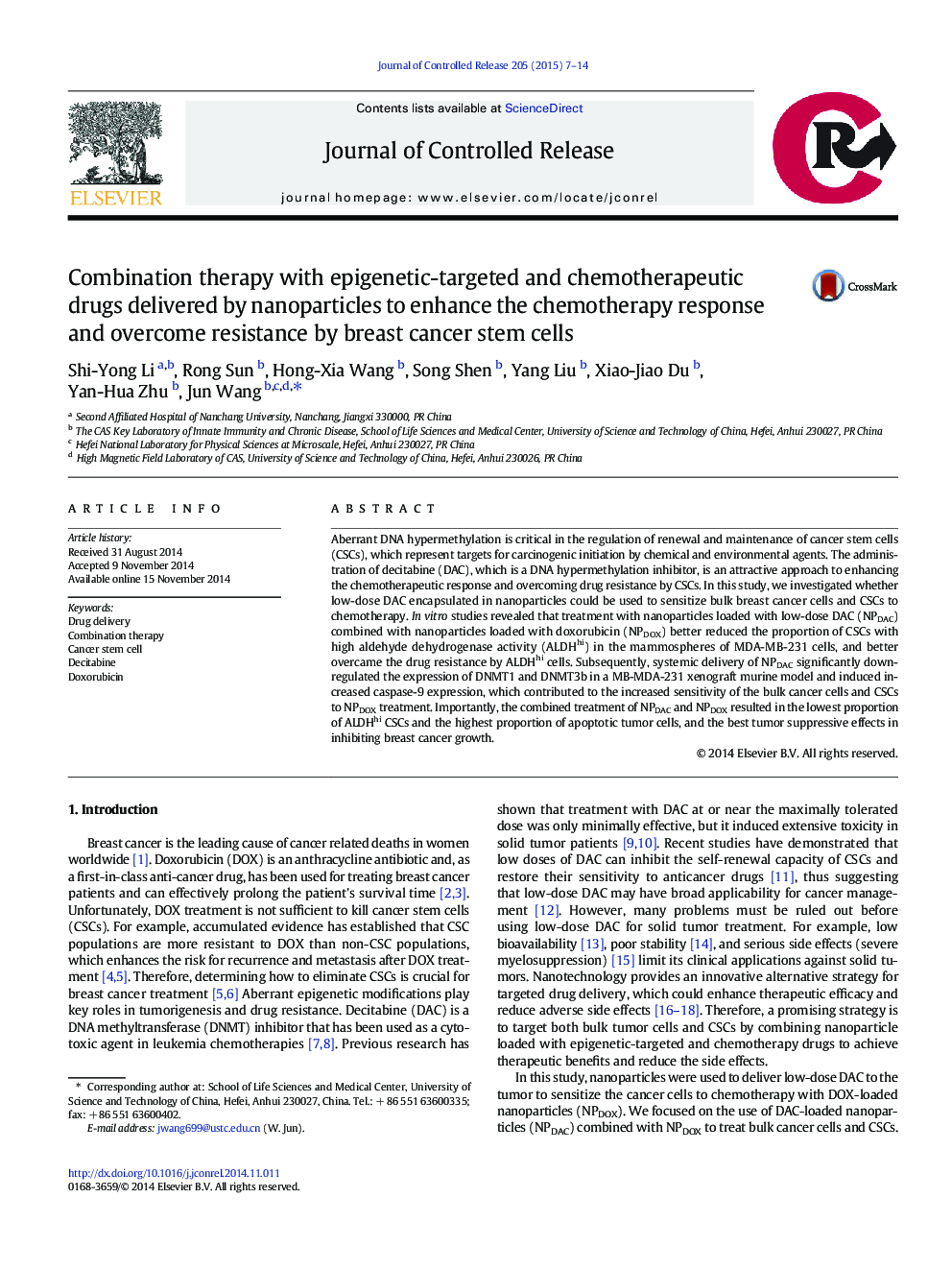| Article ID | Journal | Published Year | Pages | File Type |
|---|---|---|---|---|
| 1423753 | Journal of Controlled Release | 2015 | 8 Pages |
Aberrant DNA hypermethylation is critical in the regulation of renewal and maintenance of cancer stem cells (CSCs), which represent targets for carcinogenic initiation by chemical and environmental agents. The administration of decitabine (DAC), which is a DNA hypermethylation inhibitor, is an attractive approach to enhancing the chemotherapeutic response and overcoming drug resistance by CSCs. In this study, we investigated whether low-dose DAC encapsulated in nanoparticles could be used to sensitize bulk breast cancer cells and CSCs to chemotherapy. In vitro studies revealed that treatment with nanoparticles loaded with low-dose DAC (NPDAC) combined with nanoparticles loaded with doxorubicin (NPDOX) better reduced the proportion of CSCs with high aldehyde dehydrogenase activity (ALDHhi) in the mammospheres of MDA-MB-231 cells, and better overcame the drug resistance by ALDHhi cells. Subsequently, systemic delivery of NPDAC significantly down-regulated the expression of DNMT1 and DNMT3b in a MB-MDA-231 xenograft murine model and induced increased caspase-9 expression, which contributed to the increased sensitivity of the bulk cancer cells and CSCs to NPDOX treatment. Importantly, the combined treatment of NPDAC and NPDOX resulted in the lowest proportion of ALDHhi CSCs and the highest proportion of apoptotic tumor cells, and the best tumor suppressive effects in inhibiting breast cancer growth.
Graphical abstractCombination therapy with nanoparticles loaded with epigenetic-targeted decitabine (NPDAC) increases the sensitivity of cancer stem cells to treatment of nanoparticles loaded with doxorubicin (NPDOX).Figure optionsDownload full-size imageDownload high-quality image (92 K)Download as PowerPoint slide
